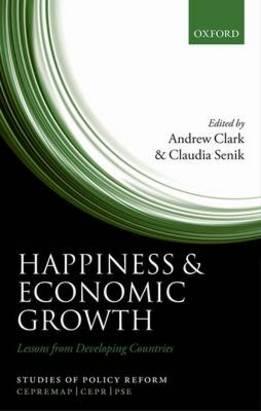Happiness and Economic Growth
Publication
Publications du CEPREMAP


Happiness economics has undergone a remarkable and rapid change, moving from something of a curiosity to a well-known and, we believe, legitimate field of research. This is reflected in the constantly mounting volume of articles and research findings that have accumulated over the past twenty years, thanks in part to the increasing availability of surveys that contain subjective well-being information. At the same time, the debate over the best measure of well-being « beyond GDP » has spread far outside of academia and reached policy makers, international organizations, and statistical offices.Happiness economics has undergone a remarkable and rapid change, moving from something of a curiosity to a well-known and, we believe, legitimate field of research. This is reflected in the constantly mounting volume of articles and research findings that have accumulated over the past twenty years, thanks in part to the increasing availability of surveys that contain subjective well-being information. At the same time, the debate over the best measure of well-being « beyond GDP » has spread far outside of academia and reached policy makers, international organizations, and statistical offices.